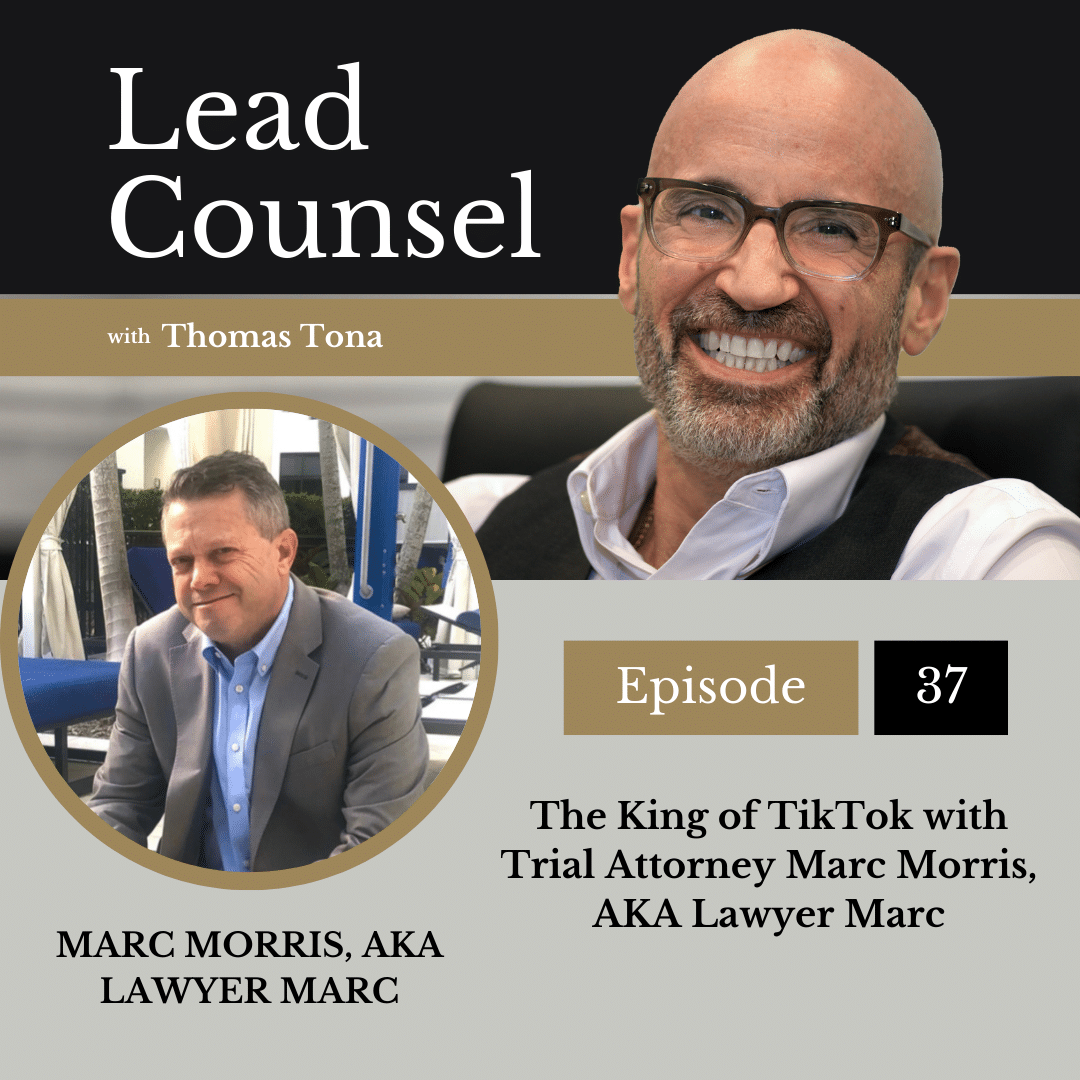Step into the world of criminal law with our special guest, Marc Morris, a seasoned defense attorney whose tales from the courtroom are as captivating as any crime novel. We promise an exciting journey, from Marc’s early fascination with trial law to his practical experiences as a prosecutor.
Ever thought of TikTok as a platform for legal discourse? We explore the growing influence of social media and artificial intelligence on the legal profession. Discover how innovative lawyers, daring to be different, use TikTok to both educate and entertain, changing the face of smaller law practices.
We sift through the legal complexities and freedom of speech challenges of this digital age. We also underline the power of personal branding on social media platforms and the importance of authenticity. This episode is more than just an exploration of law, technology, and social media – it’s a call to embrace the future with curiosity, authenticity, and originality.
- The intersection of law, social media, and artificial intelligence.
- The use of TikTok as a platform by lawyers to educate and engage with their audience.
- The importance of personal branding for lawyers on social media platforms like TikTok and LinkedIn.
- An exploration of the world of true crime.
- The creative process behind making engaging TikTok videos.
We’d love for you to follow us if you haven’t yet. Click that purple ‘+’ in the top right corner of your Apple Podcasts app. We’d love it even more if you could drop a review or 5-star rating over on Apple Podcasts. Simply select “Ratings and Reviews” and “Write a Review” then a quick line with your favorite part of the episode. It only takes a second, and it helps spread the word about the podcast.
In the constantly evolving landscape of the digital age, the field of law has been forced to adapt and keep up with the latest advancements in technology. More specifically, social media and artificial intelligence have had a profound impact on the legal profession, transforming the way attorneys approach their practice. This article explores the intersection of law, social media, and technology and how it has shaped the practice of criminal defense law.
The field of criminal law has seen drastic changes in the last decade, primarily due to the advent of digital technology. Today’s criminal defense attorneys are expected to be technologically adept, with a firm grasp on the latest trends and developments in the digital world. This is because technology has greatly influenced the strategies and tactics employed in criminal defense.
The shift from traditional law practice to a more technologically advanced approach has brought several changes. For instance, the process of client management and jury selection has been greatly impacted by digital technology. With the advent of artificial intelligence, attorneys can now analyze data and information at an unprecedented speed and accuracy, aiding them in making informed decisions about their cases.
Social media platforms like TikTok, LinkedIn, and others have emerged as powerful tools for attorneys to connect with potential clients and showcase their expertise. A lawyer can leverage these platforms to educate and entertain their audience, creating engaging content that resonates with viewers. The power of personal branding on social media platforms is significant, and authenticity is key to establishing a strong presence.
It’s important to remember that while social media can be an effective tool for legal professionals, it also comes with potential pitfalls. Issues related to freedom of speech, defamation, and privacy can arise. Therefore, attorneys need to tread carefully and be mindful of their online activities.
True crime has become a popular genre in entertainment, with podcasts, documentaries, and series drawing millions of viewers. For criminal defense lawyers, this fascination with true crime presents an opportunity to tap into a broader audience.
However, it’s crucial for lawyers venturing into this space to be aware of the legal implications. This includes understanding the difference between libel and slander, as well as the challenges related to freedom of speech in the digital age. Lawyers creating true crime content need to be mindful of their responsibility to protect their clients’ privacy and uphold ethical standards.
The intersection of law, social media, and technology is a fascinating space, offering new avenues for lawyers to expand their practice and reach a wider audience. However, it’s crucial for legal professionals to adapt to these changes and stay updated on the latest trends. The digital transformation of law is a reality that attorneys cannot afford to ignore. With the right approach and a keen understanding of digital trends, lawyers can harness the power of technology to enhance their practice and deliver better results for their clients.
